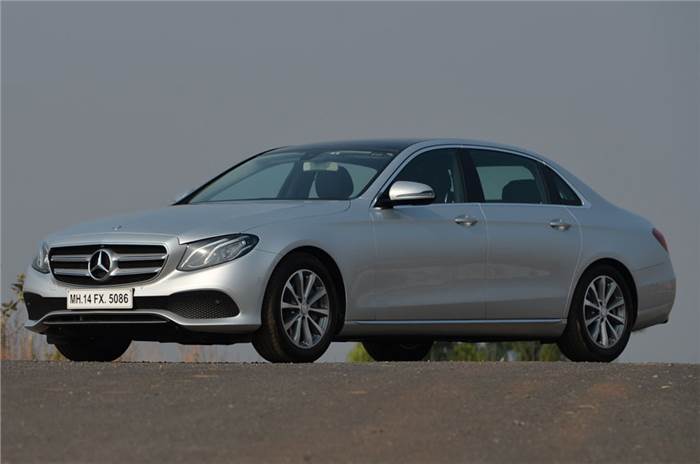Mercedes-Benz is riding a big wave of success in India as it recently posted its best-ever sales for the January-September 2017 period. With 11,869 cars sold in the first nine months, it further strengthened its position as the best-selling luxury carmaker in the country. Speaking to Autocar India on the sidelines of an event in association with the Laureus Sport for Good Foundation, Mercedes’ MD and CEO Roland Folger attributed these numbers to factors including GST-related price cuts and the success of models like the long wheelbase E-class.
GST impact
Mercedes was one of the first luxury carmakers to announce price cuts on its models during the run-up and immediately after the implementation of GST. These measures worked wonders for the brand as the market responded positively and customers flocked to showrooms in record numbers.
Folger said, “The reason for the superb growth in the third quarter for us and the industry is primarily down to the initial GST-related price cuts when a lot of customers came to us expecting that prices will go down 4-5 percent on an average across India. That spillage effect and the festive season pushed us into a best-ever quarter so far.”
He, however, admitted that the sales momentum will drop in the next quarter after the partial rollback of taxation rates forced the brand to hike prices of its models, bringing it back to pre-GST levels. This move has dampened customer enthusiasm and, as a result, Mercedes is already seeing a drop in sales.
E-class gamble pays off
Mercedes set the cat among the pigeons by launching the new E-class in the long-wheelbase version only. The gamble of prioritising backseat comfort has worked well as customers flocked to the new E.
“The maximum growth, especially in this quarter, came from the E-class which has been accepted really well in the Indian market. The bet that we took of introducing only the long-wheelbase variant has really paid off in a large way,” Folger said.
Besides the E, models like the C-class and GLC are also selling in large numbers and have contributed significantly to the brand’s overall sales.
Looking ahead
The Indian luxury car market remains a high priority for the Stuttgart-based carmaker. However, Folger believes that factors such as excessive taxation and constant fluctuations in policy making are proving to be huge dampeners on overall sales and formulating a long-term strategy for product development.
Elaborating on this, he said, “At the moment, if you look at what is happening in the marketplace and at the policies that are coming, we need a bit of peace and quiet, if I can have a little wish for Diwali. The tendency to tax the sector whenever there is a noticeable growth is a huge dampener on overall sales and a shame.”
Folger also believes that diesels in India are here to stay, at least for the near future, and does not see any dramatic shift towards petrol engines in the luxury car market. Currently, its sales ratio shows a 70-30 percent skew in the favour of diesel engines, and this is expected to continue as long diesel and petrol prices remain parallel to each other.

























.jpg&w=234&h=156&q=90&c=1)

.jpg&w=234&h=156&q=90&c=1)


Comments
Member Login
Personal Details
No comments yet. Be the first to comment.